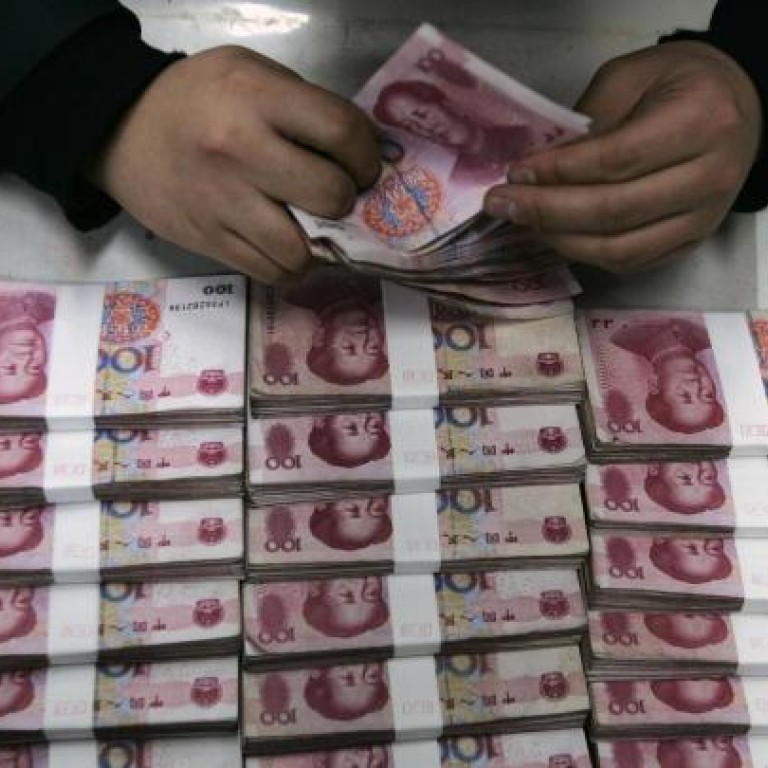
Hu betrays muddled thinking about China's economic future
He urges emphasis on a more balanced growth and consumer spending but first the leaders must have policies that increase private incomes
It's probably just as well that Hu Jintao will soon be stepping down as president of China, because in his address to the party faithful yesterday, he sounded badly confused about the country's economy.
In his speech, Hu exhorted his successors to pursue a more balanced growth model, putting more emphasis on consumer spending so that they can "unleash the potential of individual consumption".
There is nothing new about pledges to boost consumer demand. China's leaders were making them even before the last party congress in 2007.
Yet in that time, private consumption has declined from 37 per cent to just 35 per cent of China's gross domestic product, a record low for any major economy.
The reason for this fall has nothing to do with high personal savings rates inspired by some Confucian notion of thrift.
Instead private consumption has declined relative to gross domestic product because household income has fallen.
As this column pointed out yesterday, China's national income may have exploded over the last two decades, but a diminishing portion of that money has found its way into the pockets of ordinary people. Last year household income was just 45 per cent of GDP, down from 56 per cent in 1990.
So if China's leaders want to "unleash the potential of individual consumption", as Hu put it, they will first have to pump up individuals' spending power by presiding over a big increase in private incomes as a proportion of GDP.
Hu, however, doesn't seem to get the point. In his speech yesterday he declared that "to make China's development much more balanced, co-ordinated and sustainable, we should double its 2010 GDP and per capita income for both urban and rural residents" by 2020.
At first that sounds entirely reasonable. Doubling 2010's GDP by 2020 will require only 7 per cent growth for the rest of the decade, modest compared with the growth rates of recent years. And doubling per capita incomes will surely boost household spending power.
But consider for a moment: if GDP doubles, and personal incomes also double, then in relative terms household income will remain stuck at a meagre 45 per cent of GDP. There will be no increase in household spending as a proportion of GDP, and no rebalancing of the economy.
If China is to stand any hope of rebalancing, then household incomes must grow faster than the overall economy.
As Peking University professor Michael Pettis points out, there are three ways that can happen. The authorities could aggressively jack up interest rates. They could spring a substantial upward revaluation of the yuan. Or they could press employers to increase wages faster than company earnings are rising.
The first option might sound counter-intuitive. In developed economies higher interest rates usually erode disposable incomes and suppress consumer demand.
But that's because rich world consumers tend to be net debtors. In China, households have little debt, but are sitting on 40 trillion yuan in savings deposits. As a result, increasing benchmark interest rates to around 9 per cent, in line with the nominal growth rate, from 3 per cent currently, would hand households an additional 2.4 trillion yuan in annual income, increasing their spending power by 5 per cent of GDP.
But that's not going to happen. As a 2009 study by the Hong Kong Institute of Monetary Research concluded, forcing state-owned borrowers to pay market interest rates would entirely wipe out the profits of the state sector companies that make up the Communist Party's economic power base.
A major currency revaluation is equally unlikely. Although it would substantially boost the power of China's households to spend freely on imported goods, it would also hammer profits in the politically powerful export sector.
That leaves the final option: leaning on employers to raise wages more quickly than profits are increasing. This is the method Beijing has adopted since 2008 to halt the decline of incomes relative to GDP.
Raising wages doesn't much trouble China's state sector firms or its big export manufacturers, who tend to be capital rather than labour intensive.
But it severely punishes China's legions of small private sector firms, which are heavily labour intensive and which are responsible for creating all the economy's new jobs.
Hammering private sector enterprises might be politically expedient, but it is no way to rebalance the economy over the longer term. Hu doesn't appear to get the message. Perhaps his successors will.

